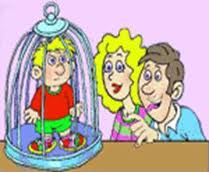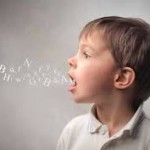DIFFERENT ATTITUDES OF PARENTS
The attitudes of parents depends on the relation between parents and children. There are two important factors in attitudes: love and dicipline. The actions of parents within family give us clues for the character of child for his/her future life. Here are some groups of parents according to their attitudes;
- PERFECTIONIST PARENTS: It is very hard for children to please their parents Parents always want more than their child’s capability. They want everything to be perfect but this perfectinist attitude is valid for whole family life, it is not limited with child. They have rigid rules. Child live emotions like excessive dismay, stress, disturbance, disappointment. Children show behaviours like biting nails, telling lies, stammering, wetting his/her underclothes.
- AUTHORITARIAN PARENTS: In these kinds of families parents have high authority over child. They always criticise the child. All the decisions are taken by parents. Child have no right to talk. Child should obey the rules so child’s ability about taking decisions does not develop. They do not listen child. They always criticise, judge and blame the child. Parents’ rules, desires and emotions are important.
- CARELESS PARENTS: Children in these families live starving of love and interest. They cannot be creative. They do not have healthy communication with people. At school they always want interest from their friends. They love to play with children younger than them. They do not show great success at school.
- EXCESSIVE PROTECTIVE PARENTS: They do not give opportunity to their children to have life experience. They act their children like babies and do not give any responsibility to their children. They perform everything for their children.
- SPOTTY PARENTS: Parents act different ways to their chid in similiar situations. There is no concinnity. Parents do not agree on their behaviours to child. One of the parent permit to child for any thing whereas other parent does not permit. Also they act differently to sisters and brothers.
- EXCESSIVE TOLERANT PARENTS: In these families there are no rules. Every desire of child is performed by parents. Children act like center of the family. Child became spoilt child. Child became spotty child and does not know what s/he want.
- DEMOCRATIC PARENTS: Parents have healthy communication with child. They trust on their child. They upbear and glorify heir child. They give responsibility to their children and parents courage their child for new experiences. The first step for healthy communication with child is to accept the child as s/he is. Parents should accept abilities and disabilities of child.Parents should not get angry with the child because s/he is not the person who parents desire.
Here are some handicaps in communication:
1- Blaming: ‘You always cry’
This behaviour hurts self reliance of child and blame himself/herself for every action s/he does.
2- Giving order:‘Go and sleep’
This cause opposiition. Child do reverse of what parents say.
3-To impend: ‘ If you do not eat your meal, you will not play in the garden’
Child began to lie. They deny or lie in order not to face with threats from parents.
4- Critisizing: ‘ You did not learn to share your toys with your friends’
You child will be passive and loose his/her self confidence.
5- Warning: To warn your child in nervous way will scare your child and this causes him/her to obey everything.
6- To make feel ashamed: ‘You are making so many mistakes’
This will make your child to feel himself/herself that s/he is little and hopeless.
7- Changing subjects: ‘Let’s talk about another thing’
Your child will think as instead of struggle with difficulties escape from it.
Factors for easy communication:
- Be quiet
- Be empathy
- Accept his/her feelings and ideas
- Be honest
- Listen and join the conversation
Do not forget your child will do what you do, not what you say.
Related Posts













